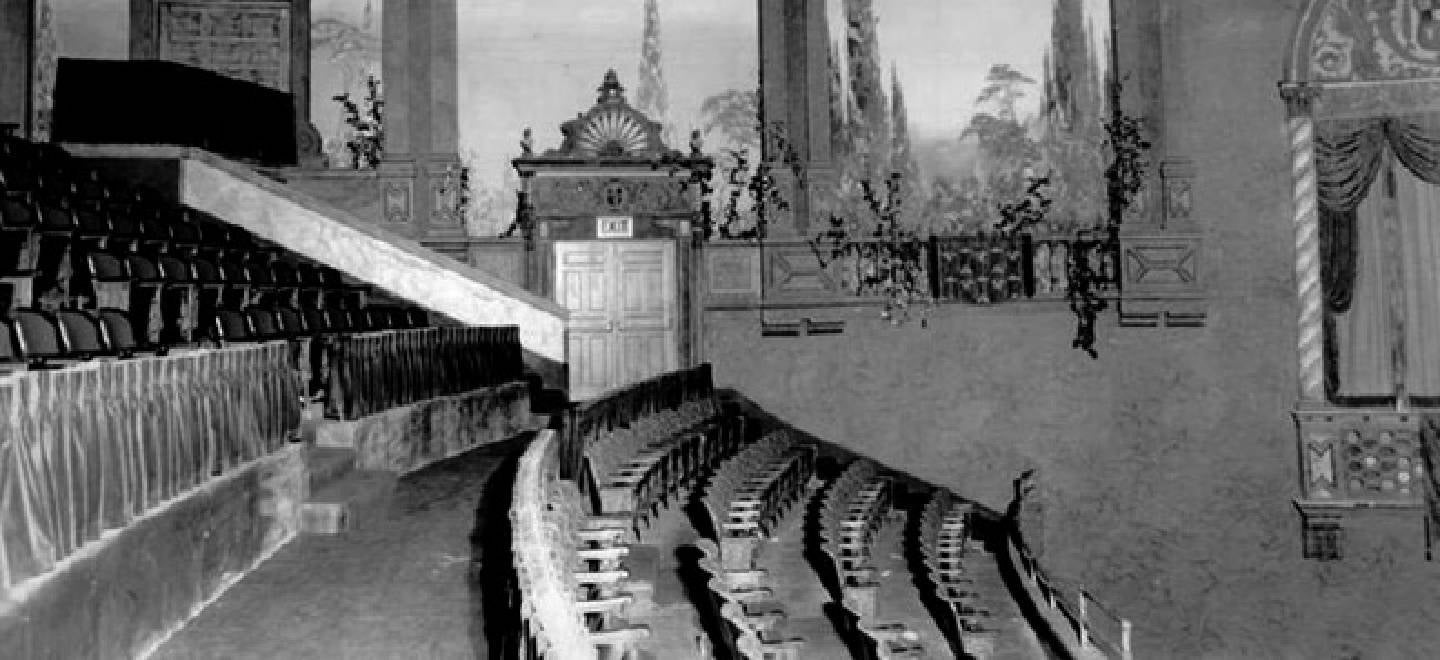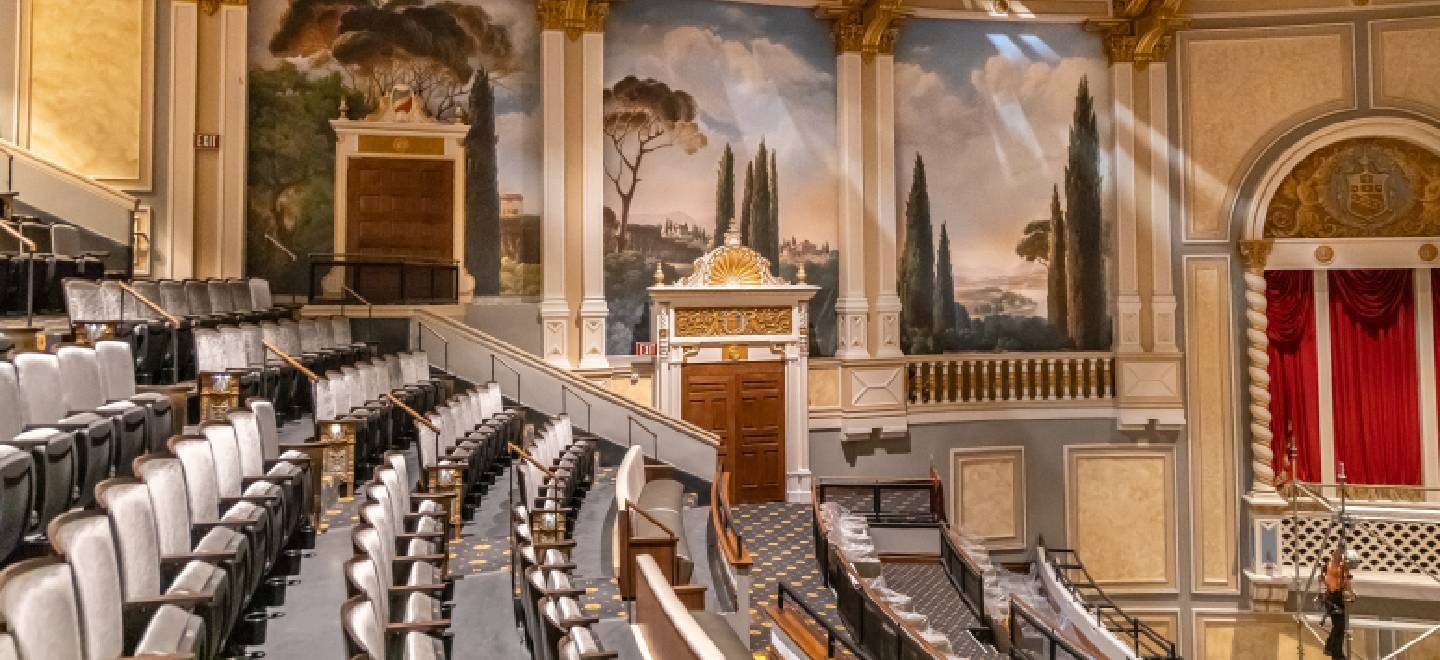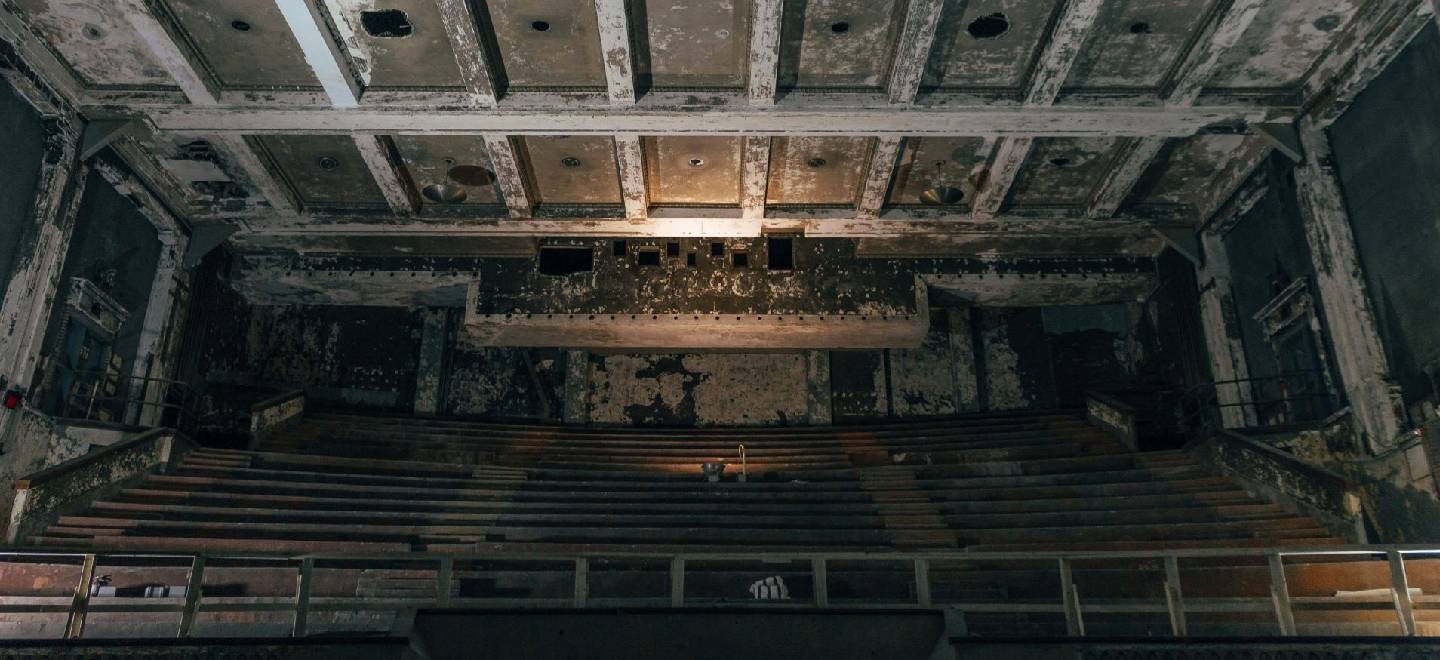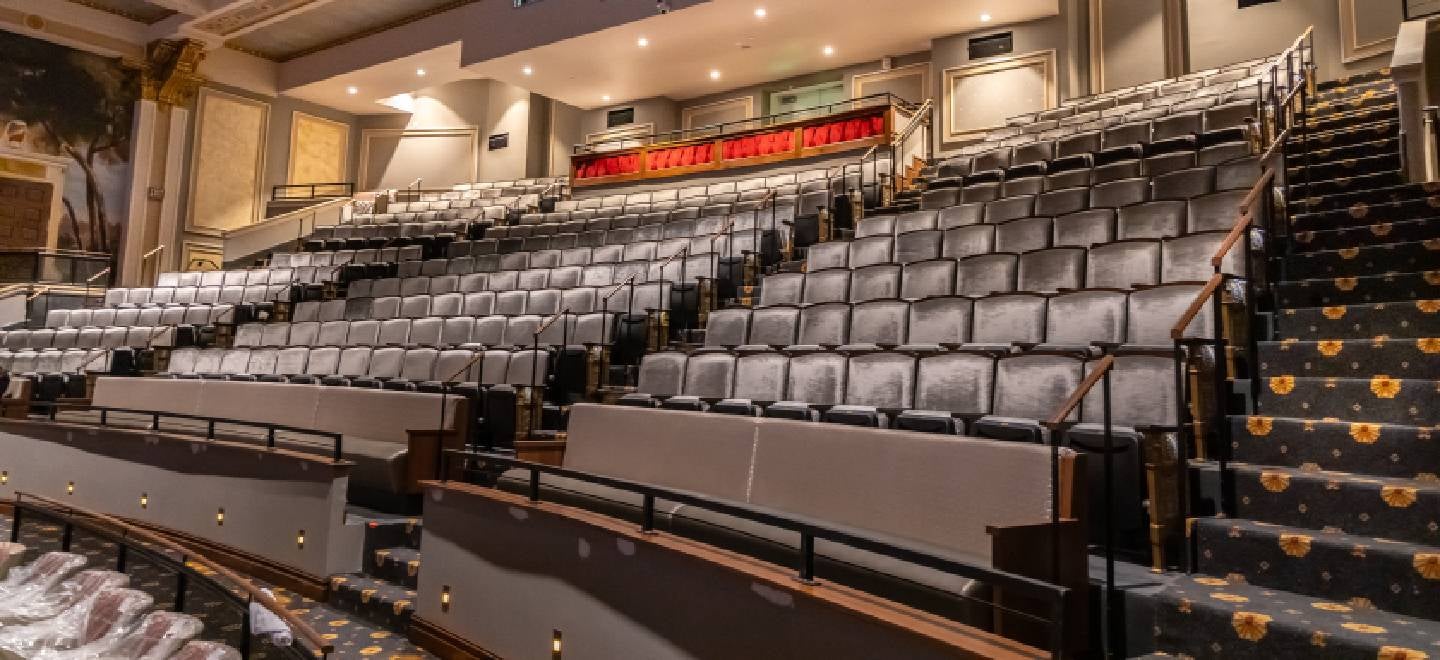Our history
The Carolina Theatre opened with great fanfare on March 7, 1927, welcoming a large audience to see the silent film comedy, A Kiss in a Taxi. The theatre was built for $750,000 and originally sat 1,450 people -- 900 in the Orchestra and 550 in the Balcony. According to a Charlotte Observer article at the time, the Carolina Theatre awed moviegoers with its wrought iron chandeliers, intricate murals and exterior balconies.
“For sheer splendor and luxury, it is a creation that will provoke admiration throughout the theatrical world,” proclaimed the Charlotte Observer.
As a preeminent cultural venue, the Carolina Theatre hosted live shows as well as feature films. The Charlotte Symphony Orchestra debuted on the Carolina Theatre stage on March 20, 1932. Perhaps most notably, Elvis Presley appeared on our stage in 1956 where he “shook, rattled and nearly rolled off the stage.” In the 1960s, the Carolina Theatre saw a record-breaking 79-week run of the movie The Sound of Music, which played to nearly 400,000 people (more than the population of Charlotte at the time). The Carolina Theatre also holds the distinction of having been the first air-conditioned building in Charlotte.
Like other Southern theatres the Carolina Theatre was, unfortunately, segregated. Black guests were prohibited from attending for decades. That changed in 1963 when Charlotte theatres began a trial desegregation period. The Carolina Theatre began admitting Black patrons in small groups, but they were required to reserve seating in advance. Within a few weeks, theatre owners dropped the reservation requirement and began rightfully admitting all patrons on the same basis.
The Carolina Theatre went into decline as audiences gravitated to the suburbs -- a phenomenon known as white flight. The theatre closed its doors on Nov. 27, 1978. But it was never forgotten. The Carolina Theatre held special memories for thousands who attended events during its prime; and for others, it represented a piece of architectural history too important to tear down. For 40 years, political leaders like former Councilwoman Patsy Kinsey, organizations like the Carolina Theatre Preservation Society, and community activists like Charlie Clayton, Lisa Lee Morgan, Sally Van Allen and John Apple pursued development options for the Carolina Theatre. Their efforts to raise awareness of the theatre and its historical significance to the community ensured the theatre’s preservation.
In 1982, The Carolina Theatre—which had narrowly escaped a fire two years earlier—was placed on the Local Historic Register, and the city bought the property in 1986. In subsequent years, several efforts to restore and renovate the theatre were tried and failed. Local citizens formed The Carolina Theatre Preservation in 1997 to help save the theatre.
In the spring of 2012, Foundation For The Carolinas approached the city of Charlotte to request the Carolina Theatre be gifted to the Foundation. As the adjacent neighbor and property owner, the Foundation had a vested interest in the site and sought to ensure that the property was a compliment to the surrounding neighborhood, a landmark for Tryon Street and a strong civic and entertainment destination for Charlotte’s Uptown. The city of Charlotte gifted the Carolina Theatre and its associated land to the Foundation for $1 in 2013. The Foundation then spent 12 years painstakingly restoring the beloved theatre to its original glory, while adding contemporary touches and technology for a modern guest experience.
The Carolina Theatre reopened in March 2025. It proudly serves as the “community’s living room,” hosting events like town halls, annual meetings, symposiums and panel discussions, full-length films, live music, comedians and more. The space will serve as an extension to the conference spaces in the Foundation’s headquarters and provide the Foundation with an additional offering for its public, private and nonprofit clients.






